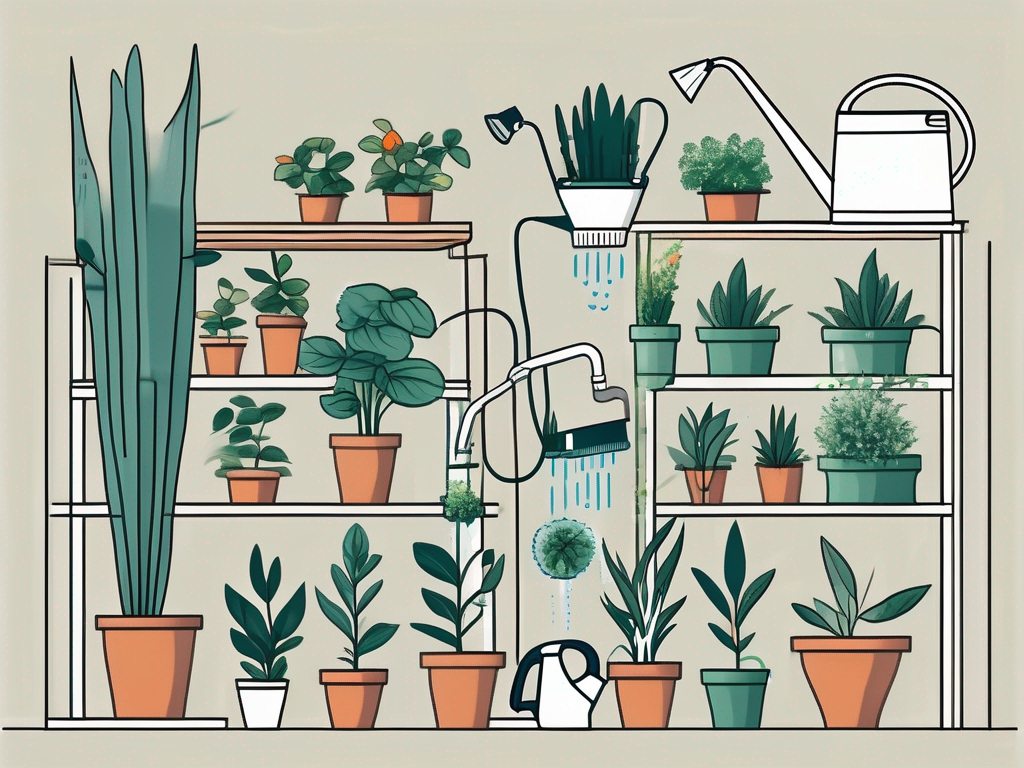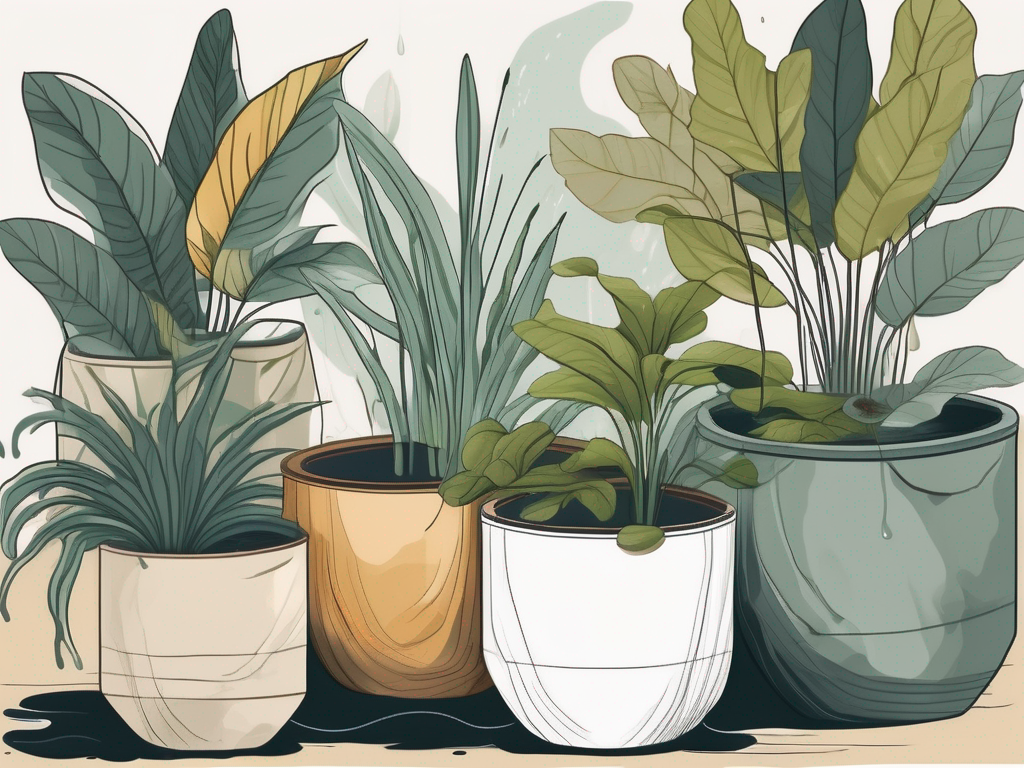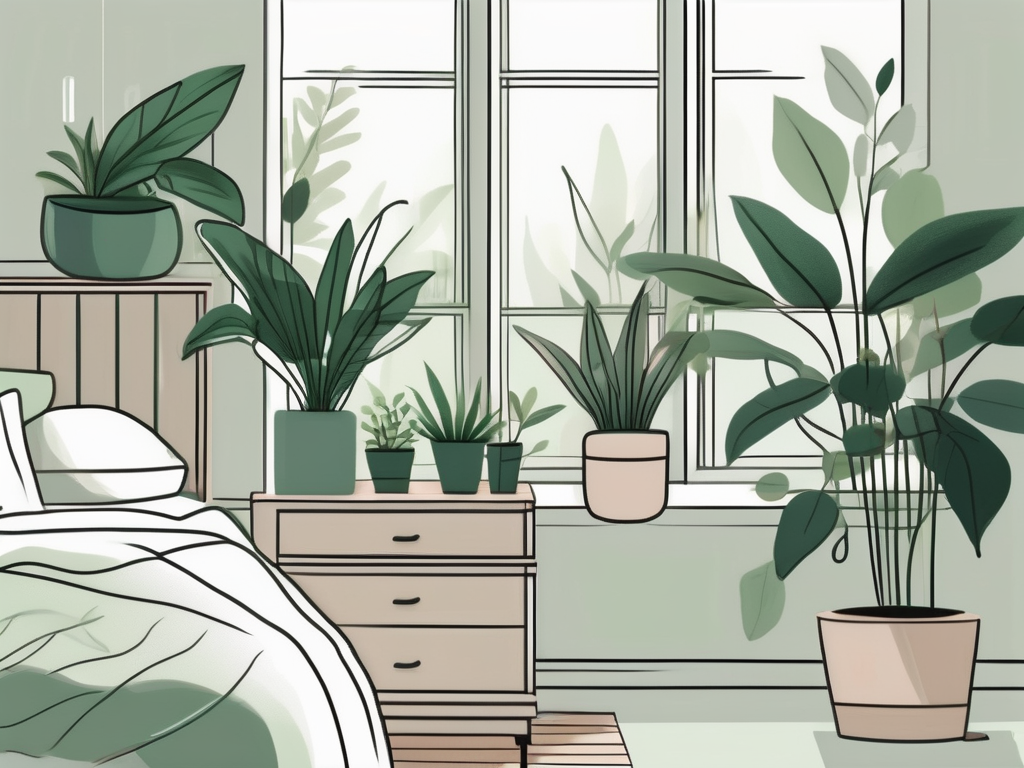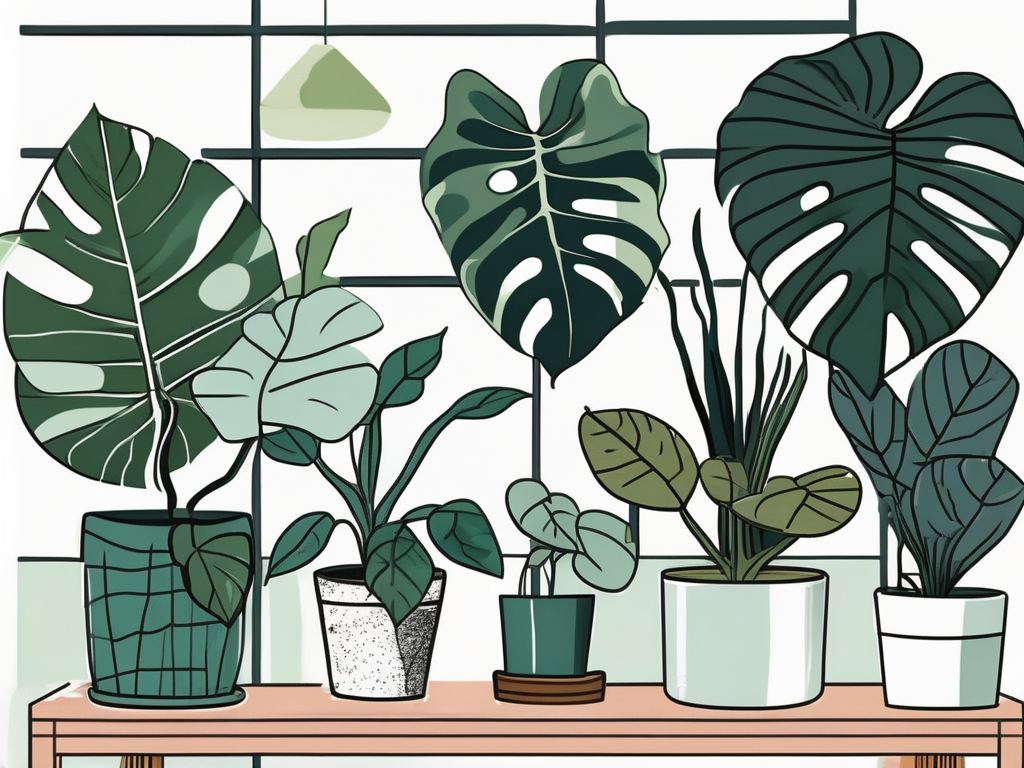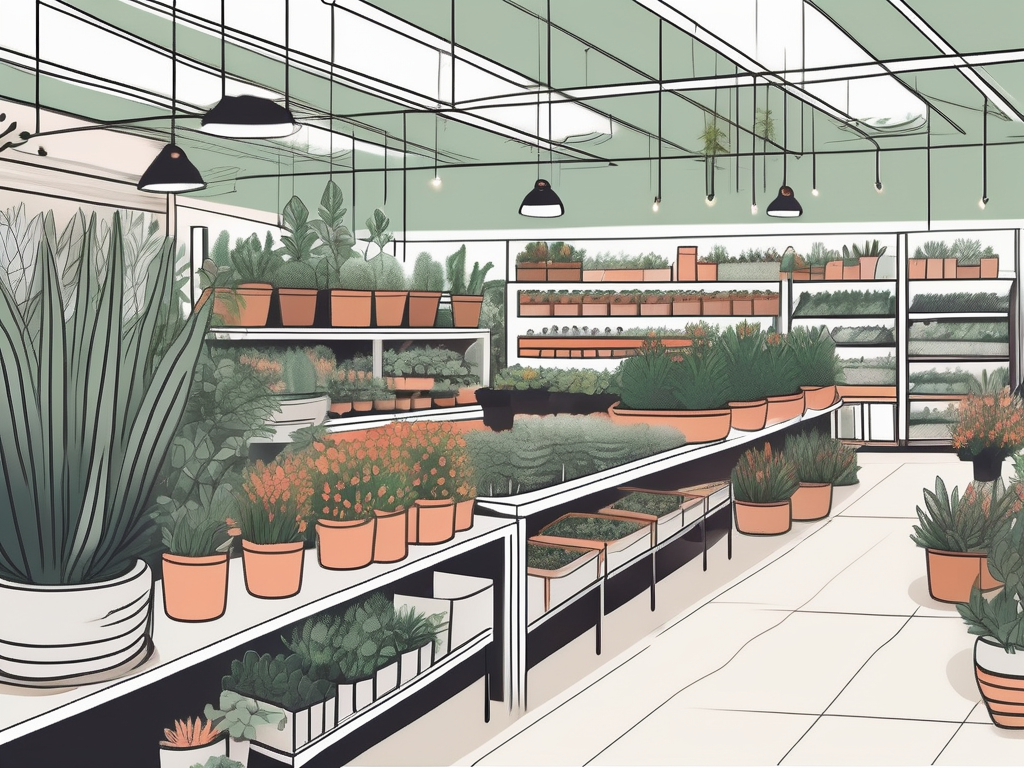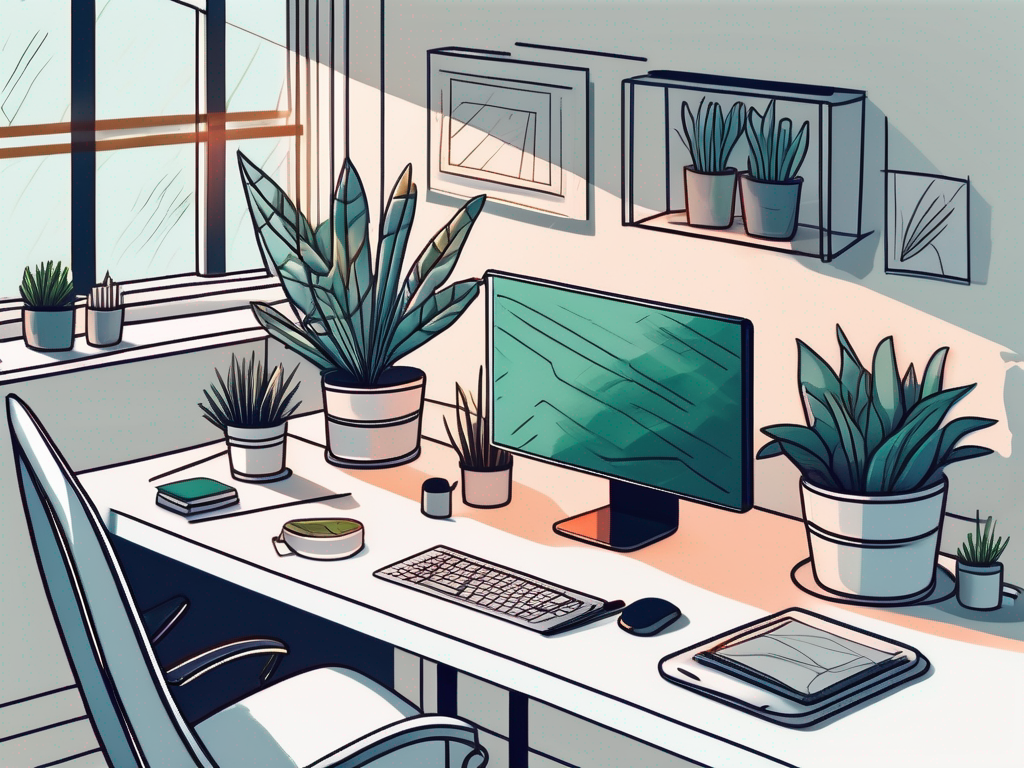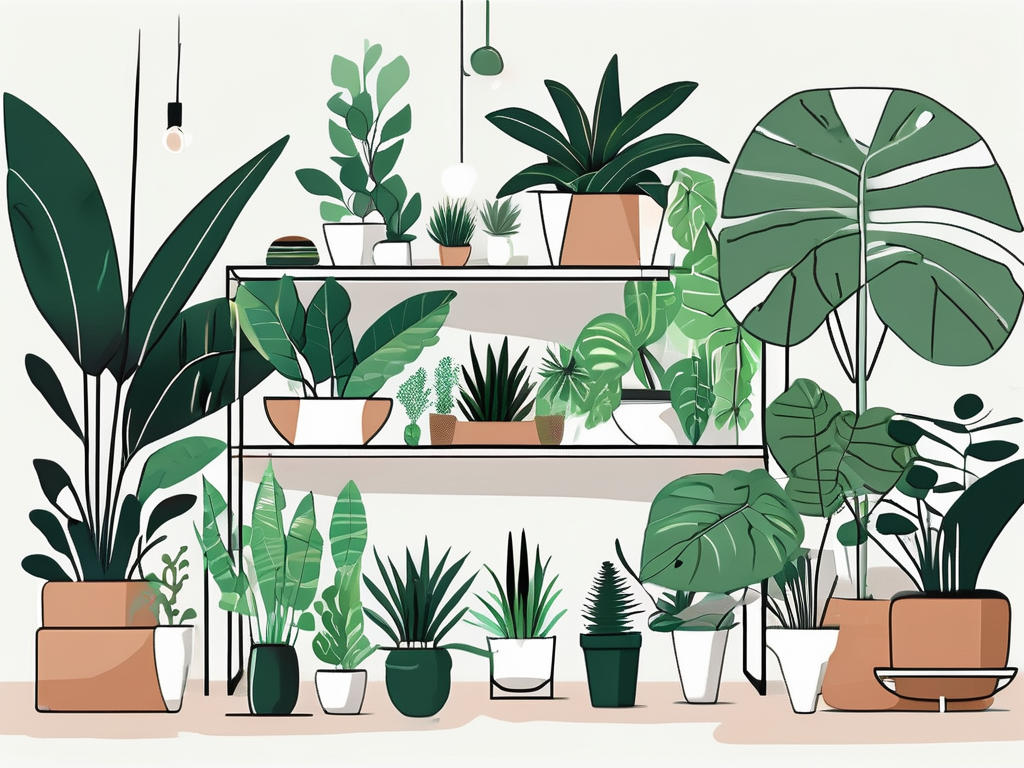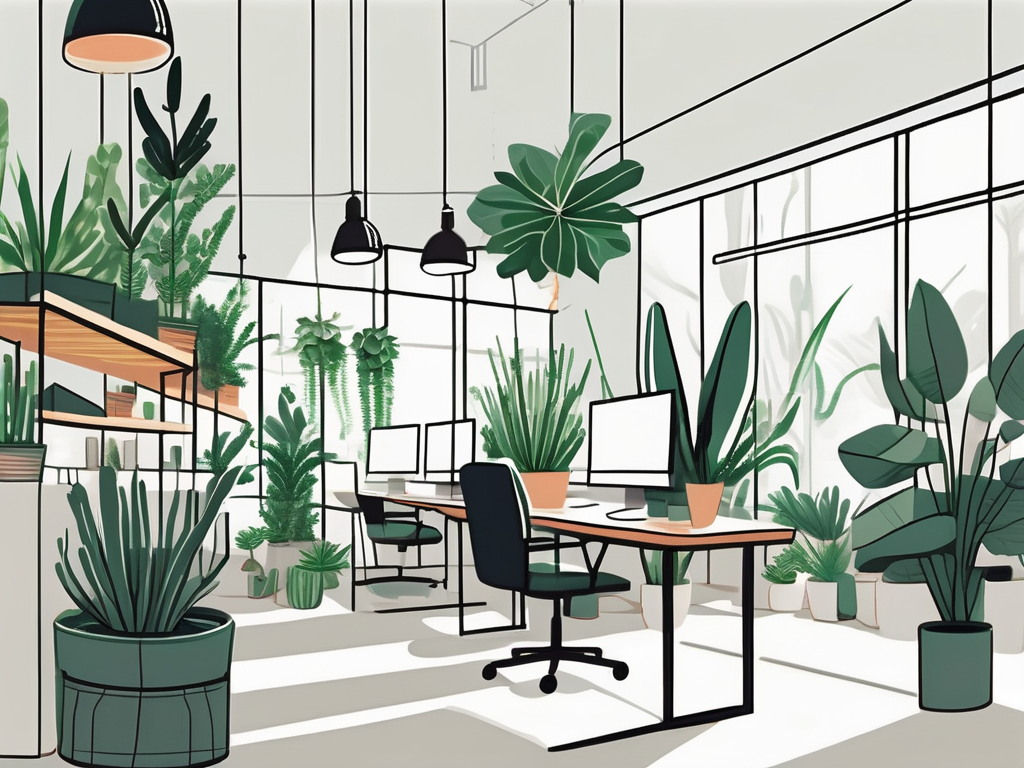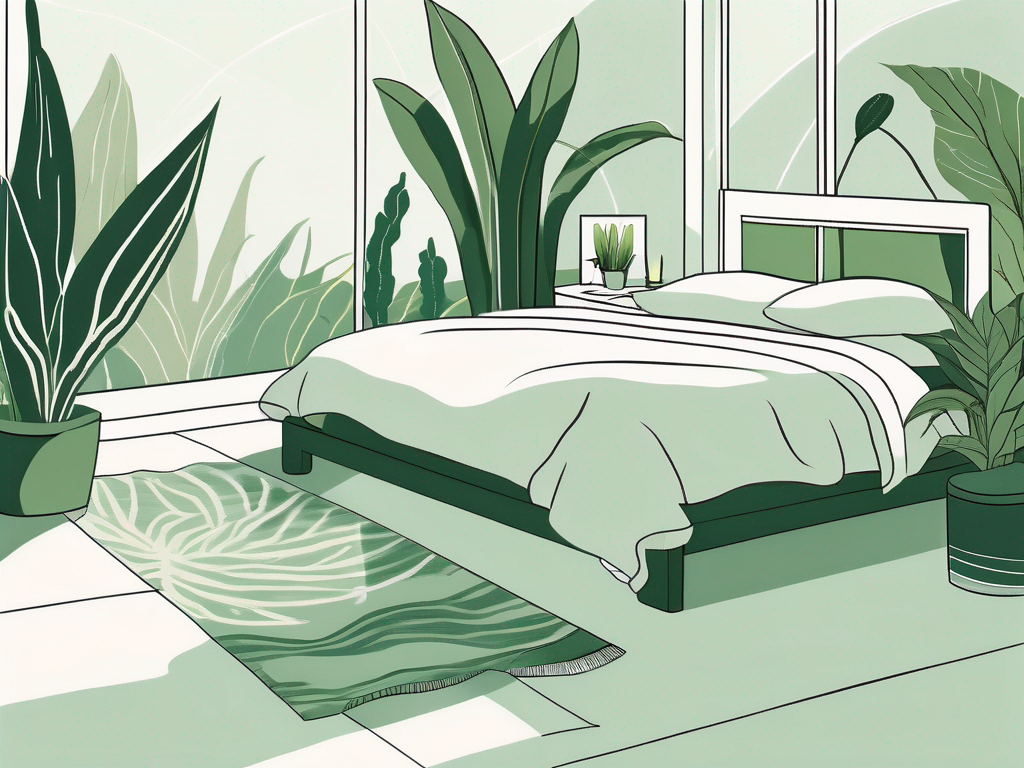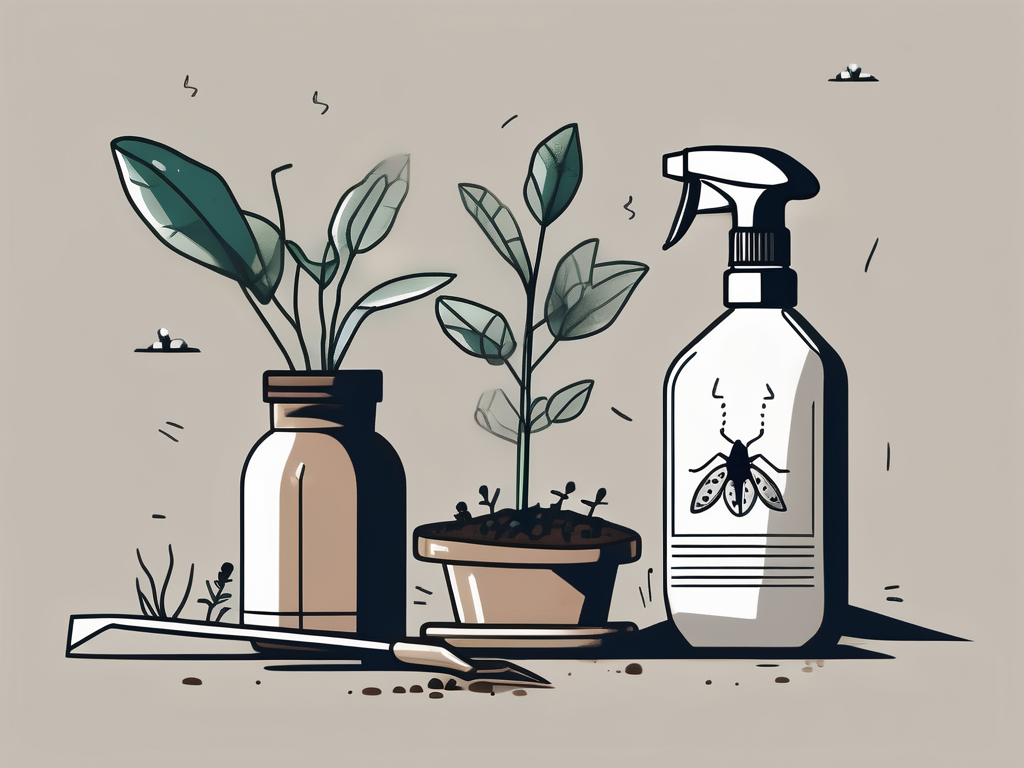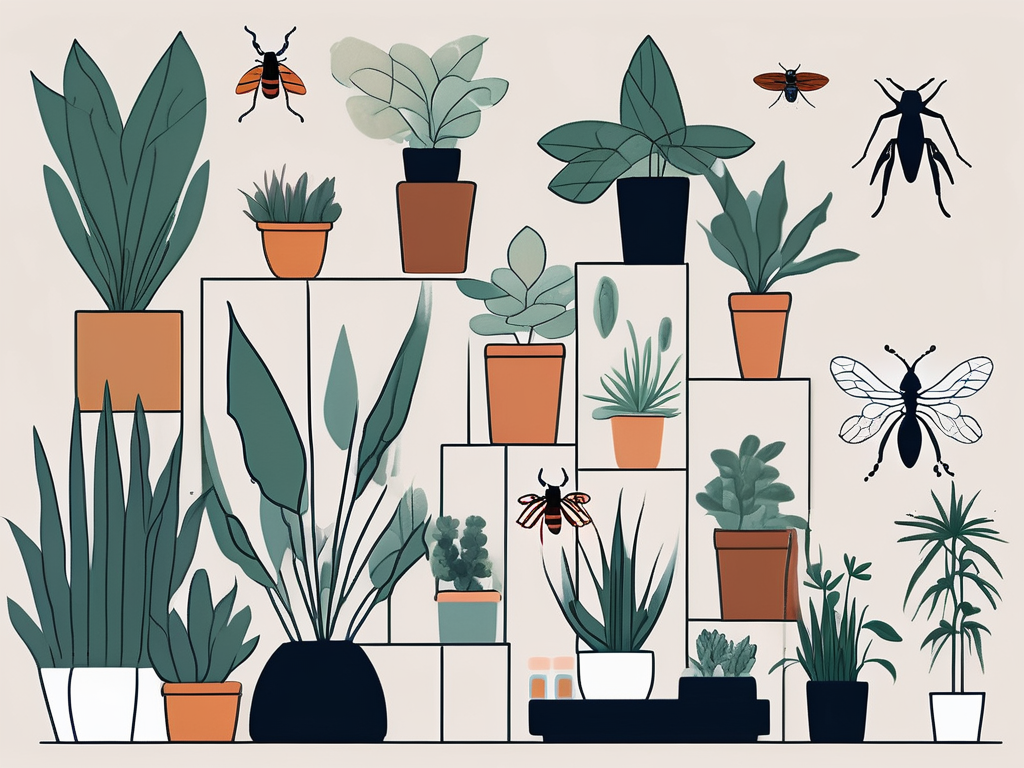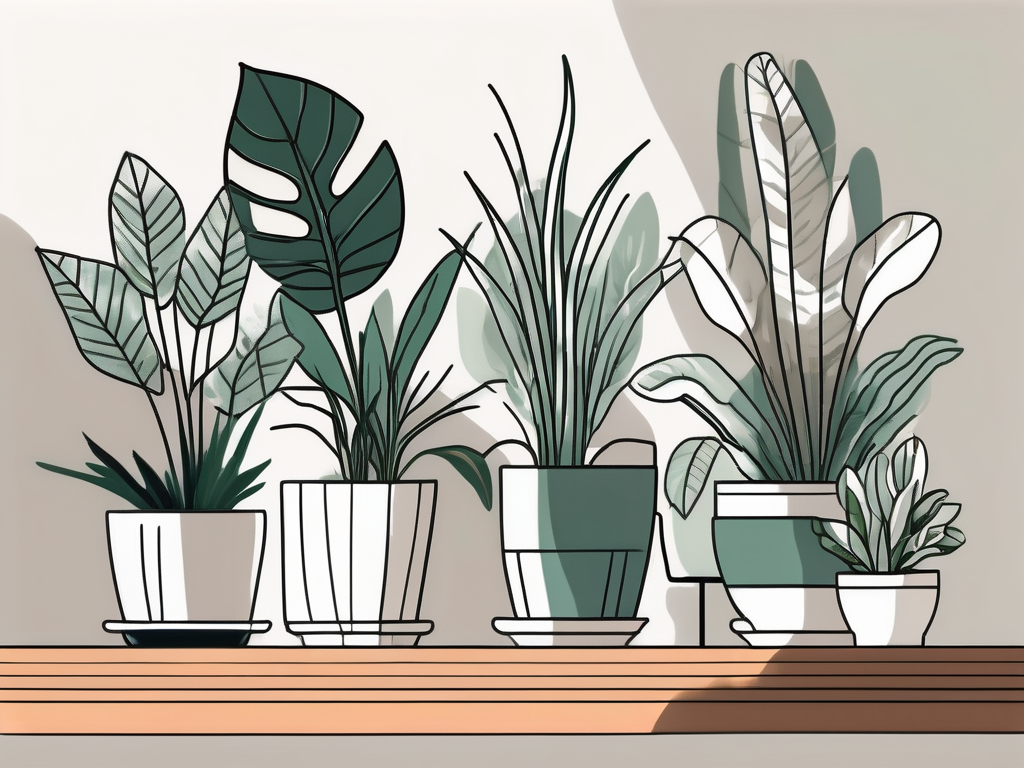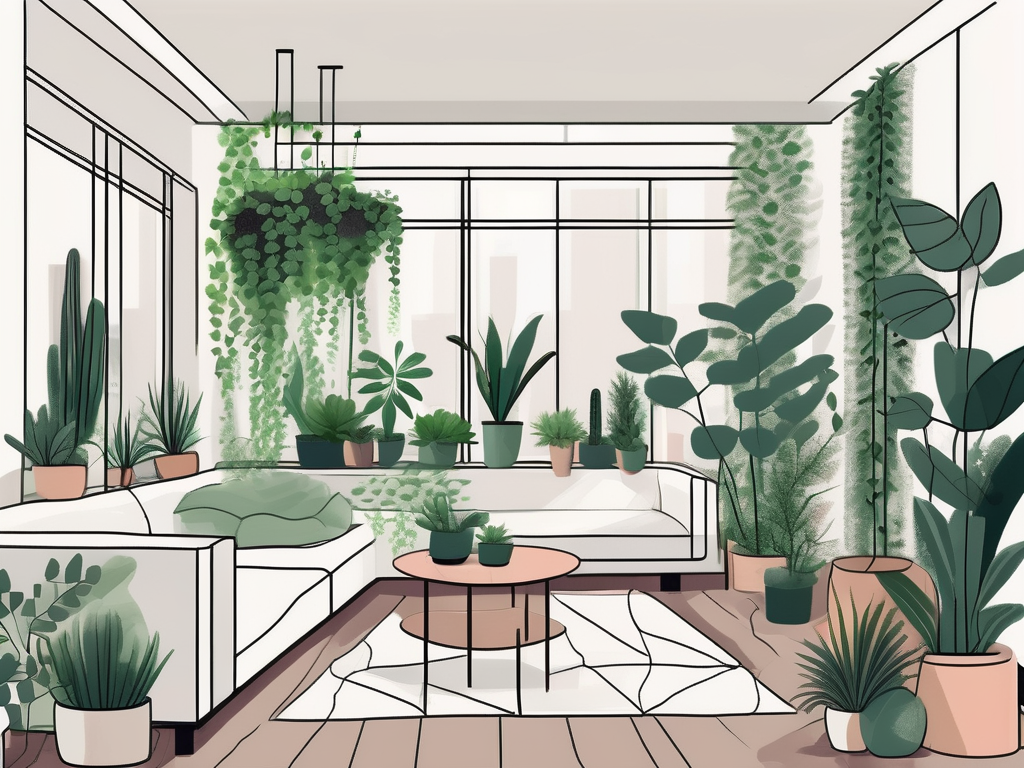
Transforming your apartment into a green oasis is easier than you might think. You don't need a sprawling backyard to enjoy the benefits of plants. With the right selection, your apartment can boast a vibrant array of greenery that not only looks great but also helps purify the air.
This article will introduce you to some of the best plants for apartment living. We'll discuss their care requirements, how they can brighten up your space, and share a few tips to keep them thriving. Whether you're a seasoned plant parent or a beginner, there's something here for everyone.
Choosing the Right Plants for Your Space
Before you start adding plants to your home, it's essential to consider a few factors. First, take a look at your apartment's natural light. Do you have large windows letting in lots of sun, or is your space more shaded? Different plants have different light requirements, so knowing your light situation will help you choose wisely.
Next, think about your lifestyle. Are you someone who travels often, or do you spend a lot of time at home? Some plants are more forgiving if you forget to water them for a few days, while others need more consistent care. Understanding your routine will guide you to plants that fit your lifestyle.
Lastly, consider the space you have available. If you have limited floor space, hanging plants or those that thrive on shelves might be your best bet. Conversely, if you have room to spare, larger statement plants can make a significant impact.
Low-Maintenance Favorites
For those who are just starting their plant journey or have a busy lifestyle, low-maintenance plants are a great choice. These plants are known for their resilience and easy-going nature.
Snake Plant
Maybe you've heard about the snake plant, often called the "beginner's plant." It's practically indestructible, thriving on neglect. Snake plants can tolerate low light and irregular watering, making them perfect for beginners or those with a busy schedule.
- Light: Low to bright indirect light.
- Water: Water every 2-3 weeks, allowing soil to dry out between waterings.
- Benefits: Known for its air-purifying qualities.
Pothos
Pothos is another excellent option for those seeking low-maintenance greenery. This plant can thrive in various lighting conditions and is forgiving if you forget to water it occasionally.
- Light: Low to bright indirect light, but avoid direct sunlight.
- Water: Water when the top inch of soil feels dry.
- Benefits: Great for improving indoor air quality.
Plants for Bright, Sunny Spots
If your apartment is blessed with plenty of natural light, you have a broader selection of plants to choose from. Plants that thrive in bright conditions can add vibrant color and texture to your space.
Fiddle Leaf Fig
The fiddle leaf fig is a popular choice for those with ample sunlight. Its large, glossy leaves make a bold statement and can transform any room into a stylish haven.
- Light: Bright, indirect light is best.
- Water: Water when the top inch of soil is dry.
- Benefits: Adds a dramatic, sculptural look to any room.
Succulents
For a low-maintenance option that thrives in sunlight, consider succulents. These plants come in a variety of shapes and colors, and they're well-suited to sunny windowsills.
- Light: Bright, direct sunlight.
- Water: Every 1-2 weeks, allowing soil to dry out completely between waterings.
- Benefits: Ideal for small spaces and easy to care for.
Shade-Loving Beauties
Apartments with limited natural light don't have to miss out on the beauty of plants. Several species thrive in low-light conditions and can brighten up even the shadiest corners.
ZZ Plant
The ZZ plant is a fantastic option for low-light areas. Its glossy, dark green leaves add a touch of elegance, and it's incredibly tolerant of neglect.
- Light: Low to medium indirect light.
- Water: Water every 2-3 weeks, allowing soil to dry out between waterings.
- Benefits: Extremely low-maintenance and drought-tolerant.
Peace Lily
Peace lilies are another excellent choice for low-light environments. They produce beautiful white blooms and are known for their air-purifying properties.
- Light: Low to medium indirect light.
- Water: Keep soil moist but not soggy; water when the top inch of soil is dry.
- Benefits: Helps to improve indoor air quality.
Plants for Small Spaces
Even if you're working with a small space, you can still enjoy the beauty of plants. Compact plants or those that can be hung or placed on shelves are perfect for maximizing your green space.
Spider Plant
Spider plants are ideal for small spaces. They can be hung or placed on a shelf, and their cascading leaves add a touch of whimsy to any room.
- Light: Bright, indirect light.
- Water: Water when the top inch of soil feels dry.
- Benefits: Easy to propagate and great for improving air quality.
Air Plants
Air plants are unique in that they don't require soil to grow. They're perfect for small spaces and can be displayed in a variety of creative ways.
- Light: Bright, indirect light.
- Water: Soak in water for 30 minutes once a week.
- Benefits: Versatile and can be displayed in many ways.
Statement Plants for a Bold Look
For those looking to make a statement with their indoor greenery, larger plants can add drama and elegance to your apartment. These bold choices can serve as the focal point of any room.
Monstera Deliciosa
The Monstera, with its iconic split leaves, is a favorite among plant lovers. It's perfect for adding a tropical vibe to your space.
- Light: Bright, indirect light.
- Water: Water when the top inch of soil feels dry.
- Benefits: Fast-growing and visually striking.
Rubber Plant
The rubber plant is another bold choice for those with a bit more space. Its large, glossy leaves make it an eye-catching addition to any room.
- Light: Bright, indirect light.
- Water: Keep soil moist, but allow the top inch to dry out between waterings.
- Benefits: Adds height and drama to interior spaces.
Tips for Keeping Your Plants Thriving
Once you've chosen your plants, it's important to maintain them properly to keep them looking their best. Here are a few tips to help you become a successful plant parent.
- Consistent Watering: Find a watering schedule that works for your plants. Overwatering is often more detrimental than underwatering.
- Proper Lighting: Ensure each plant is getting the right amount of light. Too much or too little can affect their growth.
- Humidity: Some plants, like ferns and tropical varieties, appreciate higher humidity. Consider a humidifier or regular misting for these plants.
- Regular Dusting: Dust can accumulate on leaves, blocking sunlight. Wipe leaves with a damp cloth periodically to keep them clean.
- Fertilizing: Feed your plants with a balanced fertilizer during their growing season (usually spring and summer).
Understanding Potting and Soil Needs
Choosing the right pot and soil is crucial for healthy plants. Different plants have different needs, so it's important to match them with the right environment.
Pots
The type of pot you choose can affect your plant's health. Here are a few things to consider:
- Drainage: Always opt for pots with drainage holes to prevent waterlogging.
- Material: Clay pots are porous and allow for better airflow, while plastic pots retain moisture longer.
- Size: Choose a pot that's slightly larger than the plant's current root ball to allow room for growth.
Soil
Soil is more than just a place for your plant to sit. It provides essential nutrients and affects water retention. Here's what to look for:
- Type: Different plants require different types of soil. Succulents and cacti thrive in well-draining soil, while tropical plants prefer a soil mix that retains moisture.
- Aeration: Good soil should be light and allow air to reach the roots. Consider adding perlite or sand to improve drainage.
- Nutrients: Use soil that's rich in organic matter or add fertilizer as needed to ensure your plants are getting enough nutrients.
Dealing with Pests and Fungal Issues
No one wants to deal with pests, but unfortunately, they can be a part of plant ownership. Here are some common pests and how to tackle them:
Common Pests
Some pests you're likely to encounter include spider mites, aphids, and mealybugs. Here are some tips for dealing with them:
- Spider Mites: These tiny pests can cause yellowing leaves. Increase humidity and wipe leaves with a damp cloth to remove them.
- Aphids: These can cause leaves to curl or distort. Spray plants with a mix of water and a few drops of dish soap to deter them.
- Mealybugs: These appear as white, cottony spots on leaves. Use a cotton swab dipped in rubbing alcohol to remove them.
Fungal Issues
Fungal diseases can also affect plants. Here's how to recognize and treat them:
- Powdery Mildew: This appears as a white, powdery substance on leaves. Improve air circulation and avoid overhead watering.
- Root Rot: Caused by overwatering, root rot causes roots to become mushy and black. Ensure proper drainage and allow soil to dry out between waterings.
- Leaf Spot: Brown or black spots on leaves can indicate a fungal infection. Remove affected leaves and reduce humidity.
Creating a Beautiful, Plant-Filled Space
Finally, let's talk about design. Incorporating plants into your apartment's decor can be both fun and rewarding. Here are some tips to help you style your space:
- Group Plants: Create a mini indoor jungle by grouping plants of different heights and textures.
- Use Plant Stands: Elevate your plants to create visual interest and make use of vertical space.
- Mix and Match Pots: Experiment with different pot styles and colors to add personality to your space.
- Hang Plants: Use hanging planters to add greenery without taking up floor space.
- Rotate Plants: Regularly rotate your plants to ensure even growth and exposure to light.
Final Thoughts
Bringing plants into your apartment is a fantastic way to add life and vibrancy to your home. From low-maintenance favorites to bold, statement-making choices, there's a plant for every space and lifestyle. Remember to consider your light conditions, lifestyle, and available space when selecting your plants.
At Cafe Planta, we offer a variety of houseplants, from popular favorites to unique and rare finds. We also have plant care accessories and plant-themed apparel like shirts, hoodies, and hats for plant lovers. If you have any questions about plant care, feel free to email us or DM us on Instagram. We believe in the power of plants to bring people together and connect us with nature. Whether you're an experienced plant parent or just starting your journey, we're excited to help you create a thriving plant collection in your home.

